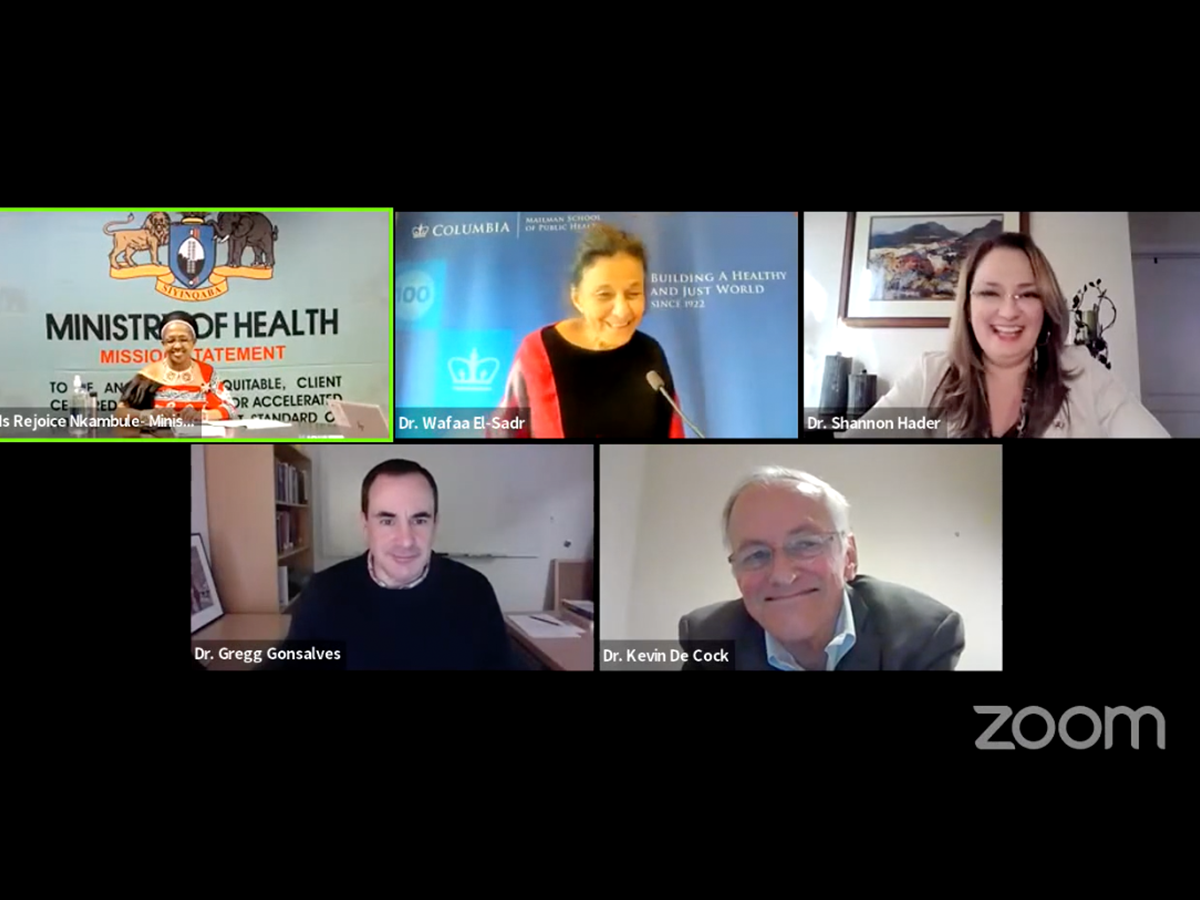Calling on its two decades of experience as a leader in the global HIV response, ICAP at Columbia University joined the worldwide commemoration of World AIDS Day this year with a series of events around the globe that considered the remarkable progress of the last four decades and rededicated efforts to address the challenges remaining.
In New York City, more than 200 people joined ICAP and the Columbia Mailman School Public Health online and in person for a special event: HIV and COVID-19 – When Pandemics Collide. Through a keynote address and panel discussion by global leaders at the forefront of the HIV response, the event explored the intersections of the HIV and COVID-19 pandemics and reflected on lessons learned from the global HIV response. “Together We Can,” a music video produced by ICAP in South Sudan was also aired, highlighting the need to maintain access and utilization of HIV services during COVID-19. In her opening remarks, ICAP’s Global Director, Wafaa El-Sadr, MD, MPH, MPA, reflected, “tremendous progress has been accomplished… Nonetheless, much remains to be done, with many more people to reach before we can put AIDS in the rearview mirror.”
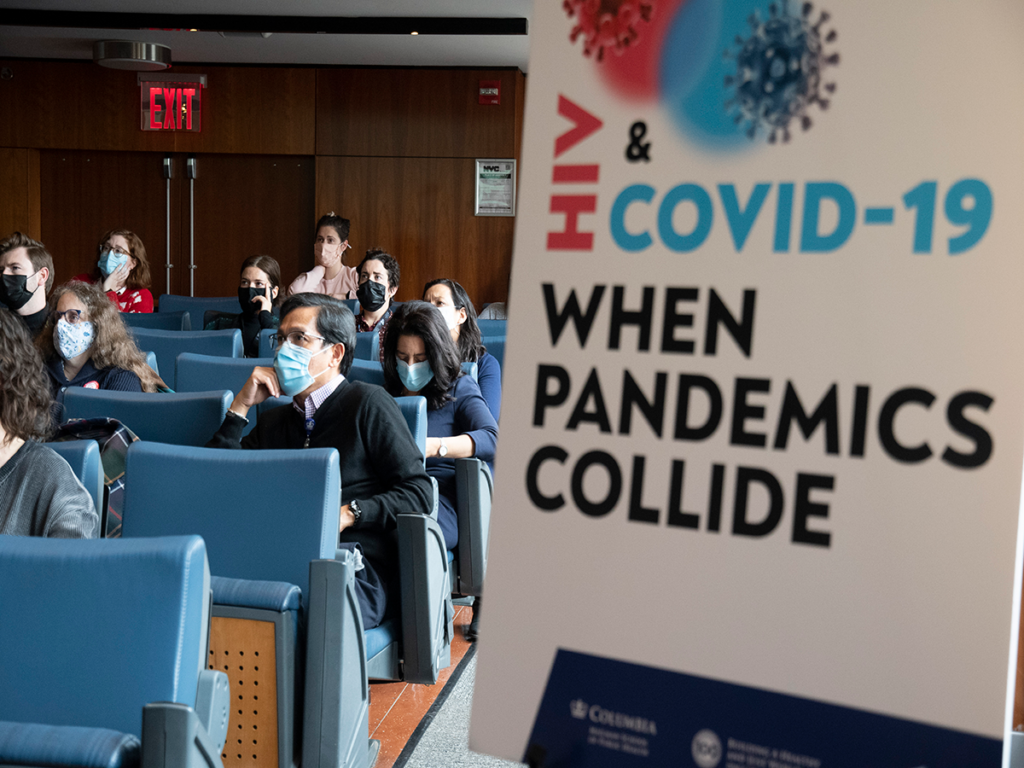
During a keynote address, Kevin De Cock, MD, FRCP (UK), DTM & H, former Director of the HIV/AIDS Department at the World Health Organization (WHO) and former Director of the U.S. Centers for Disease Control and Prevention (CDC) in Kenya, offered insightful commentary on key lessons learned through 40 years of fighting HIV/AIDS, deepening the global audience’s understanding of the connection between HIV and COVID-19. He emphasized the importance of community involvement and evidence-driven policy, stressing “communities have to own their epidemics. The advances in AIDS would not have occurred without the work of community activists and non-governmental organizations. However, the response has to be anchored in science and evidence, which political leadership and the community have to embrace.” Dr. De Dock somberly reflected on how well these lessons have been applied to the COVID-19 pandemic, stating “politics have promoted small agendas instead of the greater good. A major failure has been disrespect for science and truth.”
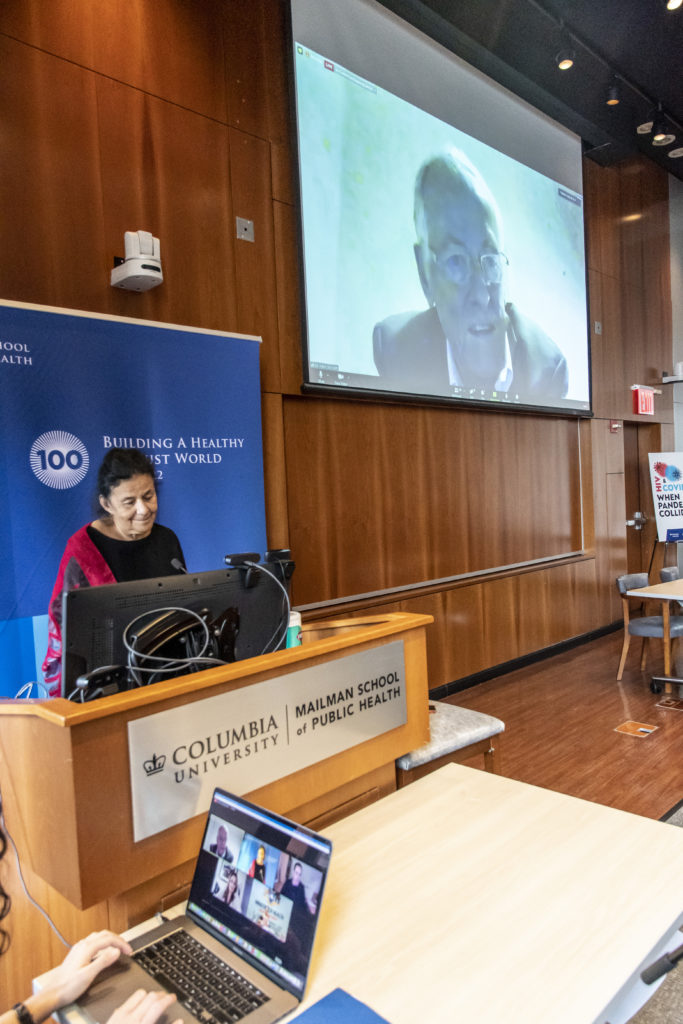
Panelists weighed in on the lessons learned in the HIV epidemic and the global response to COVID-19, unanimously calling for greater global solidarity and leadership. The Deputy Executive Director of Programme at UNAIDS and Assistant Secretary-General at the United Nations, Dr. Shannon Hader, MD, MPH, shared her dreams for future responses to global health threats to heed lessons from COVID-19 saying, “I hope there is a newer appreciation for the importance of granular, real-time data to drive decisions and changes in programs. [We need] precision public health that looks to see what communities need now and where, but also how they need it delivered and by whom”.
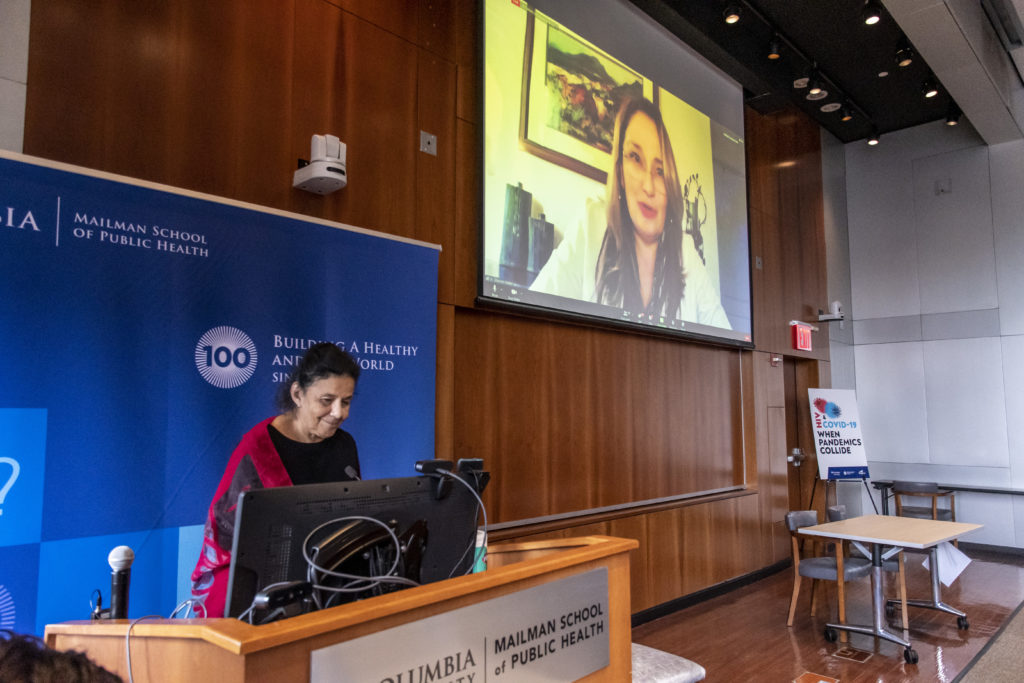
Dr. Hader was joined by fellow panelists Gregg Gonsalves, PhD, a Global Health Activist and Associate Professor at Yale School of Public Health and Yale Law School; and Rejoice Nkambule, MPH, the Deputy Director of Health Services at the Ministry of Health Eswatini.
In addition to the feature event in New York, ICAP teams around the world scheduled activities to raise awareness about the ongoing quest for HIV epidemic control. Notable initiatives took place in both South Sudan and Myanmar.
SOUTH SUDAN
In a special conference event on November 26, ICAP in South Sudan brought together participants from different walks of life to raise awareness and fight HIV-related stigma. United to address deeply rooted HIV misconceptions and myths, ICAP shared key facts and information on HIV care and treatment with participants including community stakeholders, religious leaders, social opinion influencers, celebrities, students, people living with HIV, health care providers, youth leaders, media houses, inline government entities and national organizations dealing with HIV. The dynamic event featured a panel discussion, free HIV testing, and counseling, radio messages, and premiered the “Together We Can” music video.

MYANMAR
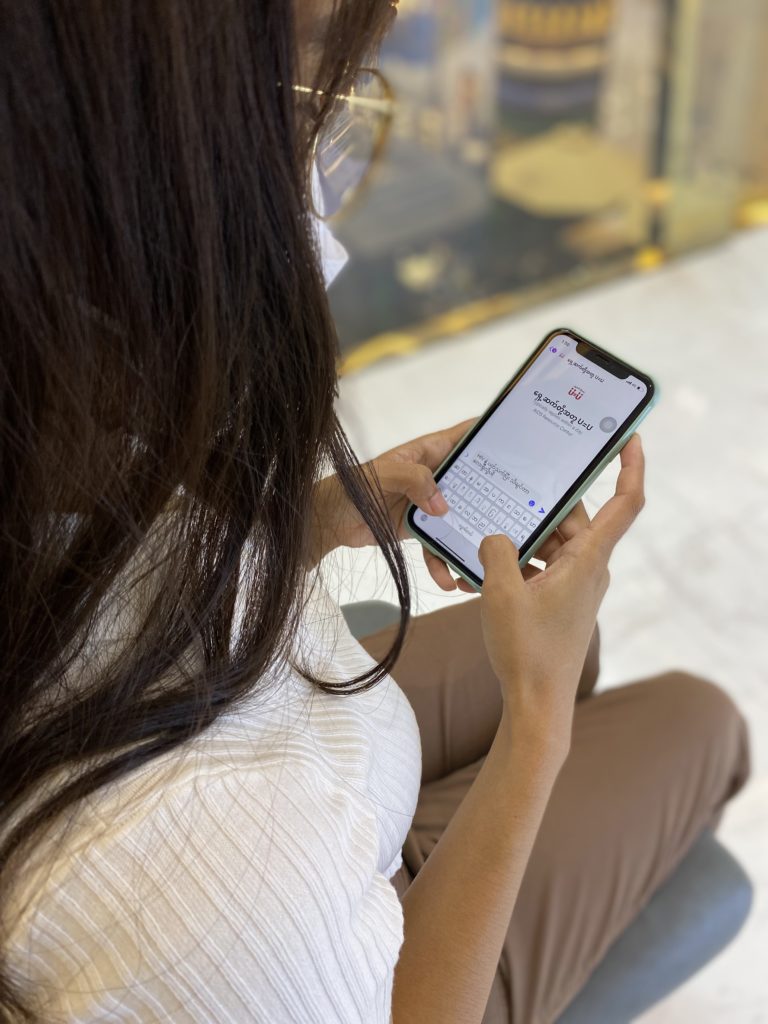 An interactive social media campaign led by ICAP in Myanmar is fighting HIV-related stigma and discrimination in accessing services for individuals at risk of contracting HIV and people living with HIV in the country. The digital campaign is providing important HIV health care information in Myanmar, where the health care system has been difficult to access amid ongoing violence following a military coup in February 2021. In collaboration with the National AIDS Program (NAP), ICAP is utilizing a chatbot to share HIV Undetectable=Untransmittable (U=U) messaging through Facebook and Telegram, providing a discrete source for community members to find reliable information on HIV testing, treatment, and prevention services. Between political upheaval amid the COVID-19 pandemic, the platforms are ensuring people living with HIV in Myanmar have reliable access to the services they need to stay healthy and make progress toward an AIDS-free future.
An interactive social media campaign led by ICAP in Myanmar is fighting HIV-related stigma and discrimination in accessing services for individuals at risk of contracting HIV and people living with HIV in the country. The digital campaign is providing important HIV health care information in Myanmar, where the health care system has been difficult to access amid ongoing violence following a military coup in February 2021. In collaboration with the National AIDS Program (NAP), ICAP is utilizing a chatbot to share HIV Undetectable=Untransmittable (U=U) messaging through Facebook and Telegram, providing a discrete source for community members to find reliable information on HIV testing, treatment, and prevention services. Between political upheaval amid the COVID-19 pandemic, the platforms are ensuring people living with HIV in Myanmar have reliable access to the services they need to stay healthy and make progress toward an AIDS-free future.
About ICAP
A major global health organization that has been improving public health in countries around the world for nearly two decades, ICAP works to transform the health of populations through innovation, science, and global collaboration. Based at Columbia Mailman School of Public Health, ICAP has projects in more than 30 countries, working side-by-side with ministries of health and local governmental, non-governmental, academic, and community partners to confront some of the world’s greatest health challenges. Through evidence-informed programs, meaningful research, tailored technical assistance, effective training and education programs, and rigorous surveillance to measure and evaluate the impact of public health interventions, ICAP aims to realize a global vision of healthy people, empowered communities, and thriving societies. For more information about ICAP, visit: icap.columbia.edu.


